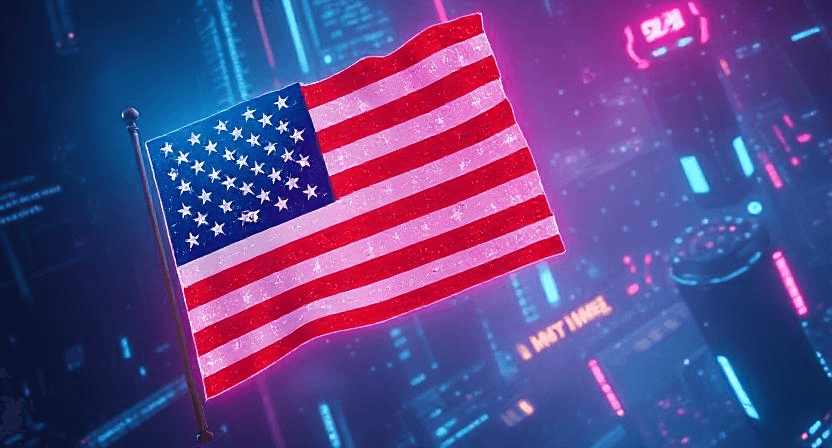U.S. Trademark Trends in 2025: Technology, Sustainability, and the Metaverse Drive Brand Battles
 As the global economy accelerates its digital transformation, consumer values shift, and technological innovation surges, the U.S. trademark application landscape in 2025 is exhibiting unprecedented diversity. From artificial intelligence to sustainable fashion, and from virtual goods to health tech, companies are leveraging trademark strategies to secure their foothold in future markets. This article analyzes data from the United States Patent and Trademark Office (USPTO) and industry forecasts to reveal five key sectors driving the growth in trademark demand.
As the global economy accelerates its digital transformation, consumer values shift, and technological innovation surges, the U.S. trademark application landscape in 2025 is exhibiting unprecedented diversity. From artificial intelligence to sustainable fashion, and from virtual goods to health tech, companies are leveraging trademark strategies to secure their foothold in future markets. This article analyzes data from the United States Patent and Trademark Office (USPTO) and industry forecasts to reveal five key sectors driving the growth in trademark demand.
1. Artificial Intelligence and the Metaverse: Building the "Brand Infrastructure" of the Digital World
The explosive adoption of generative AI tools (such as ChatGPT and Midjourney) has prompted companies to accelerate trademark registrations for AI tools and virtual assistants. For instance, Microsoft filed the "Copilot+" series of trademarks in 2024, covering areas like AI data analysis and code generation.
Meanwhile, trademark applications related to the Metaverse have increased by 67% year-over-year, encompassing virtual events, digital identity authentication, and 3D interaction technologies. Sportswear giant Nike recently registered the "Air Metaverse" trademark, planning to sell digital sneakers and fitness programs in the virtual world.
Trend Insight: Trademarks are no longer limited to physical products but also cover intangible services such as algorithm models and user experience design. Companies must guard against their names being maliciously registered as NFTs or virtual goods.
2. Clean Energy and the Circular Economy: Green Trademarks as Competitive Barriers
The Biden administration's Inflation Reduction Act has spurred a surge in clean energy investments. In 2025, trademark applications for terms like "solar optimization systems" and "hydrogen fuel cells" have tripled compared to 2021. Tesla's subsidiary, "Tesla EcoGrid," has registered a matrix of trademarks covering energy storage and smart grids.
The fashion industry is also stepping up: Patagonia has trademarked "Recycled Polyester," while startup Circular Threads has applied for a service mark for "Apparel Lifecycle Blockchain," aiming to use technology to track product recycling chains.
Trend Insight: As consumers grow more wary of "greenwashing," trademarks must be tied to verifiable environmental technologies to build long-term trust.
3. Health Tech and Personalized Consumption: From "Products" to "Solutions"
In the post-pandemic era, health management needs continue to evolve. In 2025, trademark applications related to AI diagnostics and genetically customized nutrition have grown by 48%, with examples like "HealthGPT" (a personalized medical advice platform) and "MyDNAKitchen" (a gene-matched recipe service).
In the sportswear sector, Under Armour has registered the "Biometric Recovery" trademark, covering services that monitor muscle fatigue through wearable devices and provide recovery solutions.
Trend Insight: Trademark descriptions are shifting from single products to "ecosystems," with combinations like "smart hardware + data analysis + subscription services" becoming the norm.
4. Virtual Fashion and Digital Identity: Gen Z's "Social Currency"
According to McKinsey, the virtual fashion market is projected to exceed $50 billion by 2025. Luxury brand Gucci has applied for a trademark for its Metaverse collection, "Gucci Virtual Threads," while digital-native brands like The Fabricant have registered trademarks such as "NFT Couture" for their "zero-physical-garment" model.
Moreover, propelled by the rise of the "digital identity economy" on social media, TikTok influencers are applying for trademarks of their personal names in bulk, covering derivative businesses such as virtual character merchandise and fan community platforms.
Trend Insight: Trademark classifications must cover Class 9 (digital files), Class 35 (online retail), and Class 41 (entertainment services) to address cross-boundary business models.
5. Food Tech Revolution: Plant-Based and Cultured Meat Sectors Heat Up
As competition intensifies between Beyond Meat and Impossible Foods, plant-based food trademarks in 2025 are focusing on niche scenarios, such as "SteakRoot" (plant-based steak) and "AquaHarvest" (algae protein drinks). In the cultured meat sector, Upside Foods has registered the "EthicalBite" trademark for its "slaughter-free bacon" technology.
Trend Insight: Regulatory policies play a significant role, and companies must emphasize "ingredient compliance" in trademark descriptions, using terms like "lab-grown" or "plant-derived."
Corporate Strategies: Multi-Dimensional Defense and Rapid Iteration
Facing fierce trademark competition, companies are adopting two key strategies:
- Cross-Class Registration: Tech companies like Apple have registered the "Vision Pro" trademark across hardware, software, eyewear, and even medical fields to mitigate risks from business expansion.
- Micro-Brand Portfolios: L'Oréal has launched "EcoGlow," a niche haircare brand targeting Gen Z, with a separate trademark to avoid diluting its main brand's value.
Conclusion
The trademark battleground of 2025 reflects the deep collision of technology, consumer behavior, and policy. Whether it's tech giants securing their ecosystems or startups innovating in niche markets, trademarks are no longer just legal moats but also "prophecies" of a brand's future value. In this era of "boundaryless competition," early trademark strategy planning may determine a company's survival in the next decade.
Share this page
